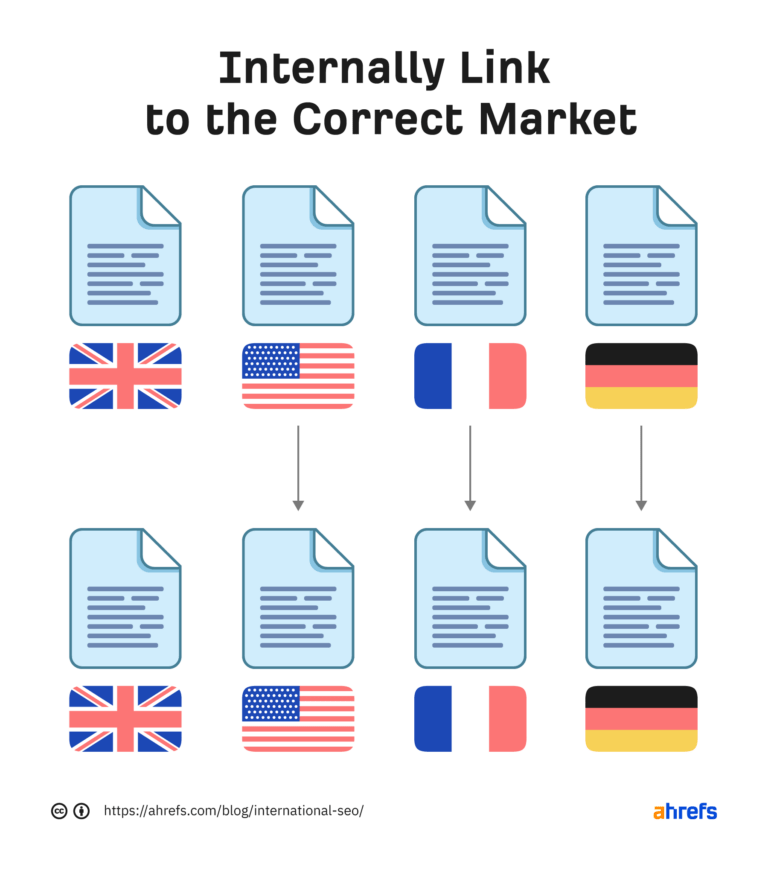Breaking Boundaries: International SEO Methods for Worldwide Domination
Breaking Boundaries: International SEO Methods for Worldwide Domination
Blog Article
Navigating the Digital Landscape: Leveraging International Search Engine Optimization for Cross-Border Success
In today's interconnected digital world, organizations are significantly looking beyond borders to touch into global markets. The complexity of browsing the digital landscape on a worldwide scale demands a nuanced method, from understanding the basics of International Search engine optimization to implementing geotargeting and multilingual keyword strategies.
Comprehending International Search Engine Optimization Basics
Navigating the details of international SEO requires a strong understanding of essential concepts to successfully broaden online exposure across boundaries. One vital element of worldwide Search engine optimization is comprehending the significance of localization.
Additionally, having a clear understanding of geo-targeting is important. This includes showing to internet search engine the certain countries or regions a site is targeting. Carrying out hreflang tags is one way to communicate this details, ensuring that the right version of a page appears in the search results page for a user in a certain area.
In addition, understanding the influence of neighborhood search engines and social media sites systems is essential for global SEO success. While Google is dominant in several regions, countries like China have their own search engines like Baidu, calling for customized approaches for each platform to maximize on-line exposure (International SEO).

Targeting Multilingual Search Phrase Methods
Creating multilingual keyword methods is necessary for successfully reaching diverse global audiences and maximizing online exposure across different etymological areas. When targeting multilingual key phrase methods, it is crucial to conduct extensive study to recognize the particular search terms and expressions made use of by the target audience in each etymological region. This includes not only equating key words but likewise taking into consideration cultural subtleties, local languages, and search fads special per target audience.
To produce a successful multilingual keyword approach, it is necessary to prioritize importance and search intent. Search phrases need to align with the content on the site and resonate with the social context of the target market. Making use of devices such as Google Key Phrase Organizer, SEMrush, or Ahrefs can help determine high-performing search phrases in different languages and assess their search quantity and competition level.
In addition, surveillance and assessing the efficiency of multilingual key words routinely is crucial for maximizing and fine-tuning the approach over time. By continuously adapting to modifications in search habits and patterns, organizations can improve their online exposure and bring in even more global traffic to their web sites.
Implementing Geotargeting and Hreflang Tags
When aiming to boost global search engine optimization strategies, including geotargeting and hreflang tags is essential for maximizing click for source website exposure throughout various regions. Geotargeting involves tailoring web content to certain locations, making certain that individuals in different areas obtain relevant information. By executing geotargeting, organizations can boost their local search positions and attract region-specific web traffic.

Optimizing Internet Site Structure for Worldwide Exposure
To further improve global Search engine optimization approaches beyond geotargeting and hreflang tags, enhancing the site framework is vital for achieving worldwide visibility and maximizing reach throughout different regions. A well-structured internet site not just improves customer experience but likewise helps with search engine crawlers in comprehending the material and context of the website.
Additionally, creating language-specific subdirectories or subdomains can assist internet search engine provide the appropriate version of the website to individuals based upon their language preferences, better enhancing the general user experience. Additionally, optimizing link frameworks to include relevant key words and geotargeted terms can enhance the site's visibility in various areas. By structuring the web site efficiently for worldwide target markets, services can increase their opportunities of drawing in global web traffic and broadening their reach throughout borders.

Surveillance and Evaluating Cross-Border Efficiency
Effective surveillance and studying of cross-border efficiency is important for assessing the success of worldwide search engine optimization strategies and determining chances for renovation in worldwide reach and presence. By very closely tracking essential efficiency signs (KPIs) across various markets, organizations can gain important insights right into the this post performance of their cross-border SEO efforts. Keeping track of metrics such as organic traffic, keyword rankings, conversion prices, and bounce rates can offer a comprehensive sight of how well a web site is doing in different regions.
Assessing cross-border efficiency data enables businesses to recognize fads, patterns, and locations for optimization. By comparing efficiency across various nations, regions, or languages, companies can determine effective techniques and localize web content to much better accommodate specific target market. Furthermore, keeping an eye on cross-border performance enables businesses to remain active and responsive in the ever-evolving electronic landscape. Routine evaluation of SEO efficiency on a worldwide scale ensures that business can adapt their techniques quickly to maximize emerging opportunities and maintain a competitive edge in international markets.
Conclusion
In conclusion, international search engine optimization plays an essential role in achieving cross-border success by maximizing sites for global exposure, targeting multilingual keyword phrase strategies, carrying out geotargeting and hreflang tags, and checking cross-border efficiency. By comprehending the basics of worldwide SEO and maximizing site frameworks appropriately, services can successfully get to and involve with their target audiences throughout different regions and languages. This critical technique is vital for expanding market reach and driving on site link the internet development in today's digital landscape.
Report this page